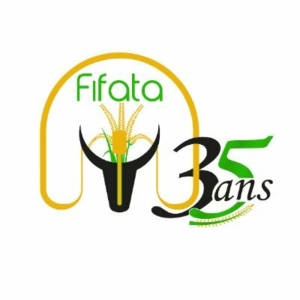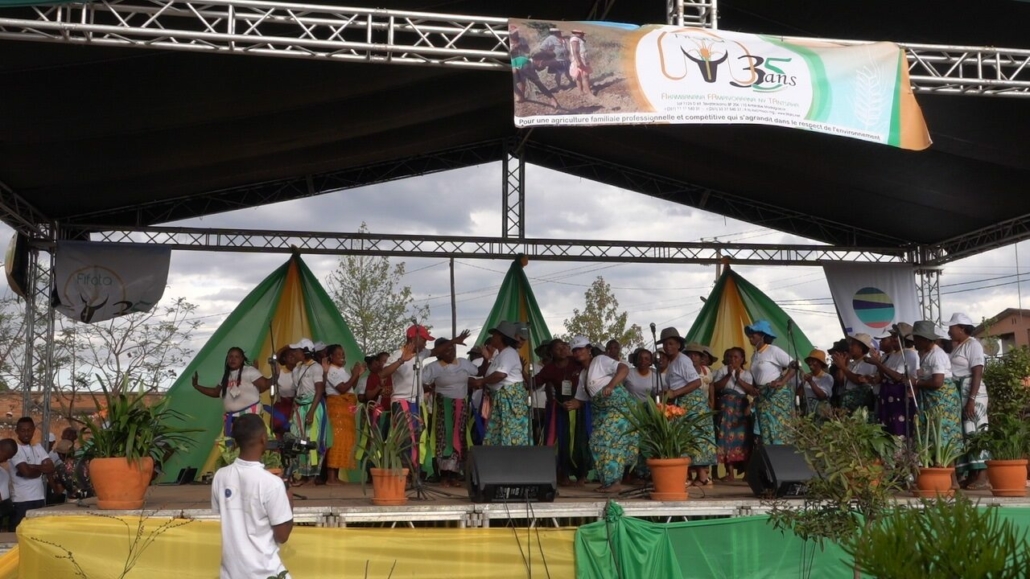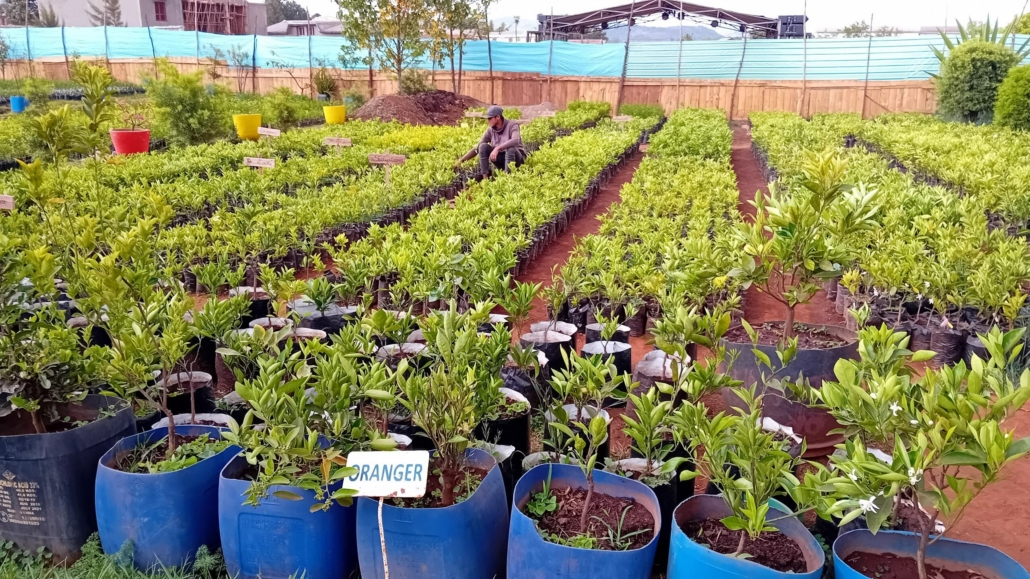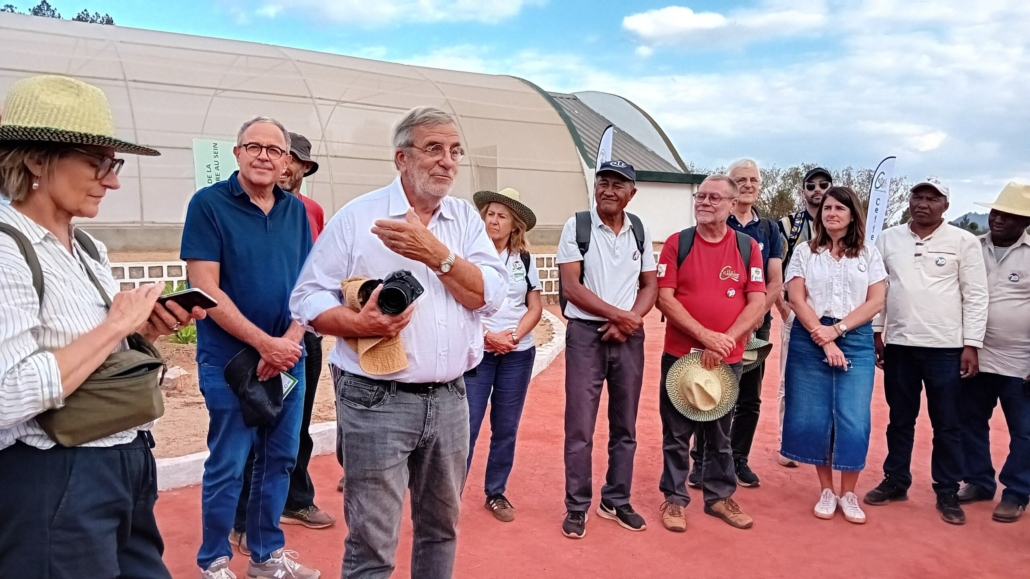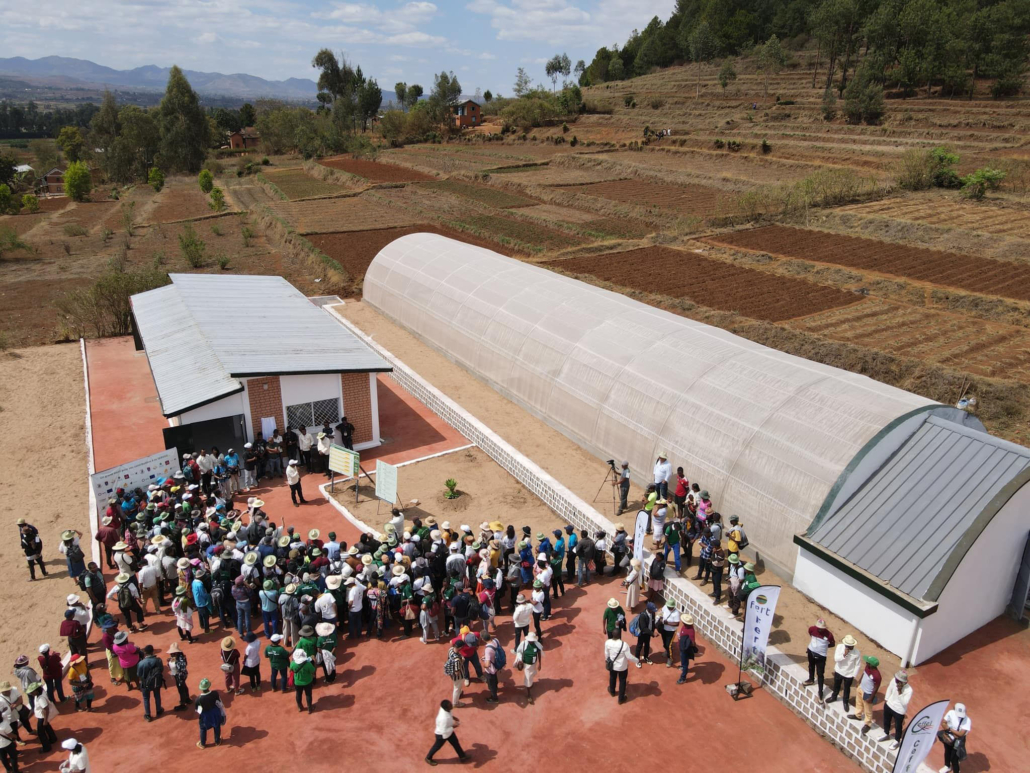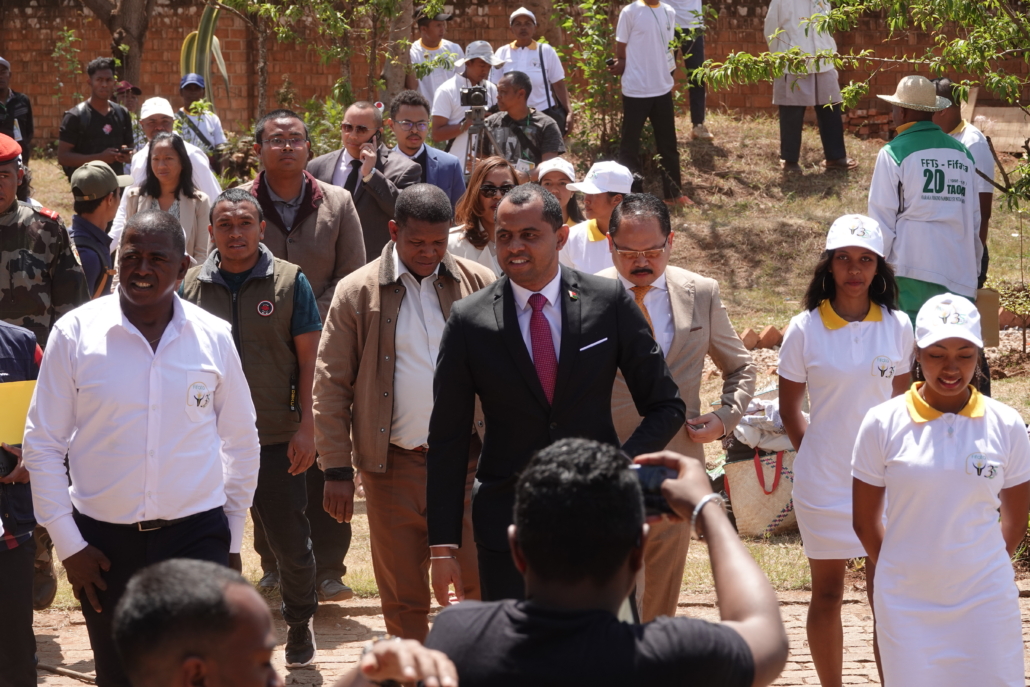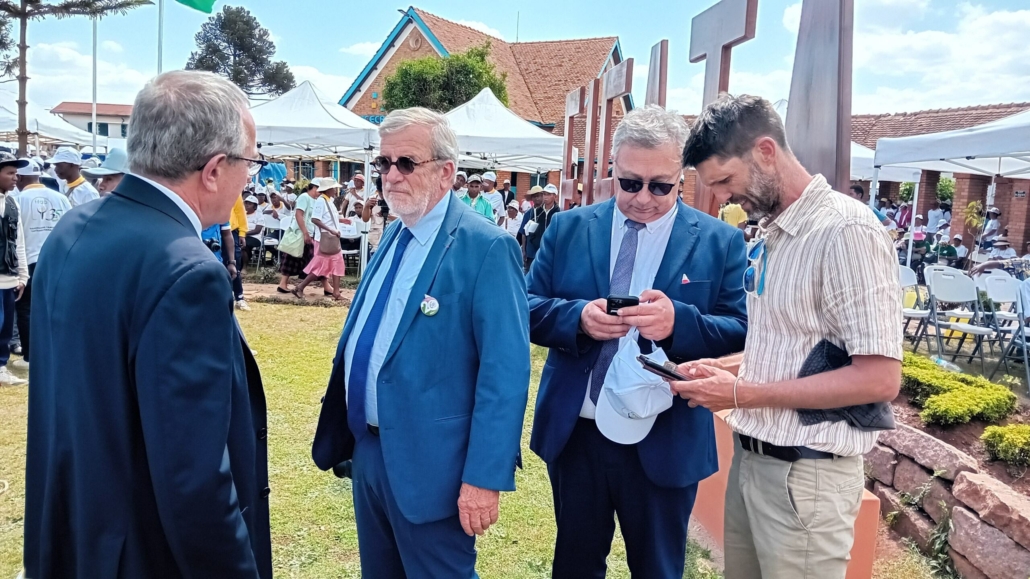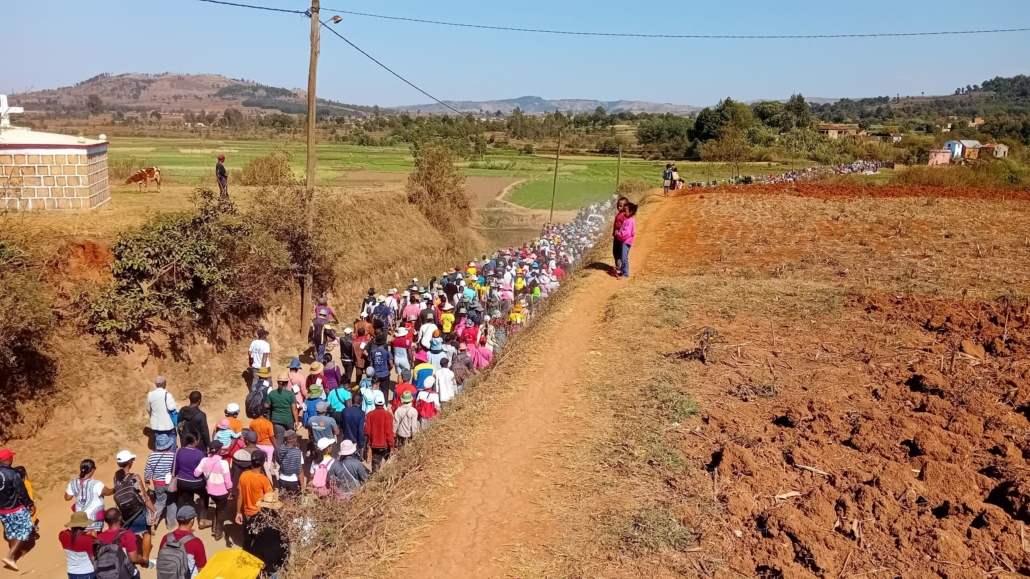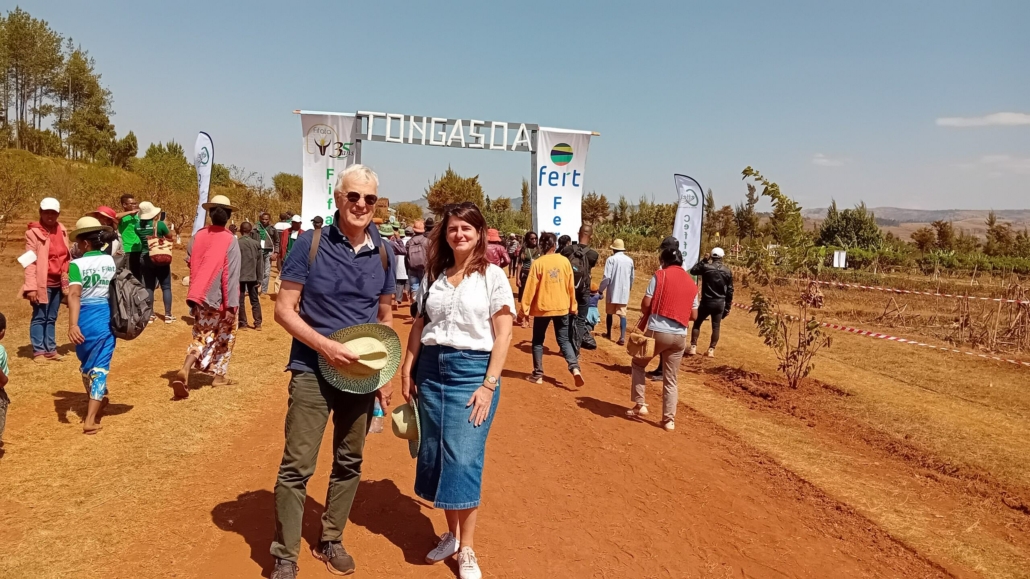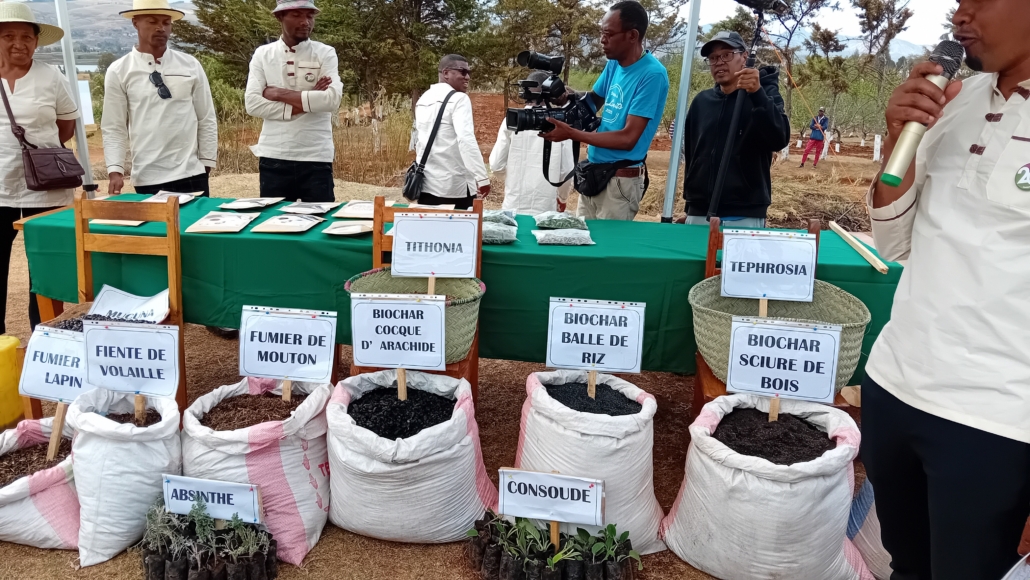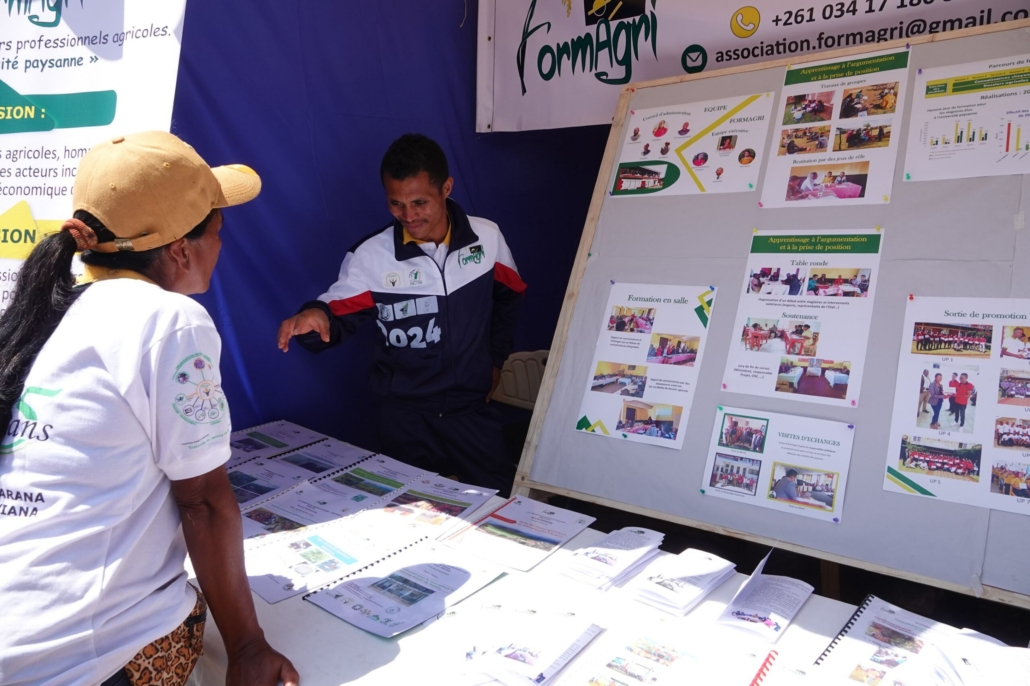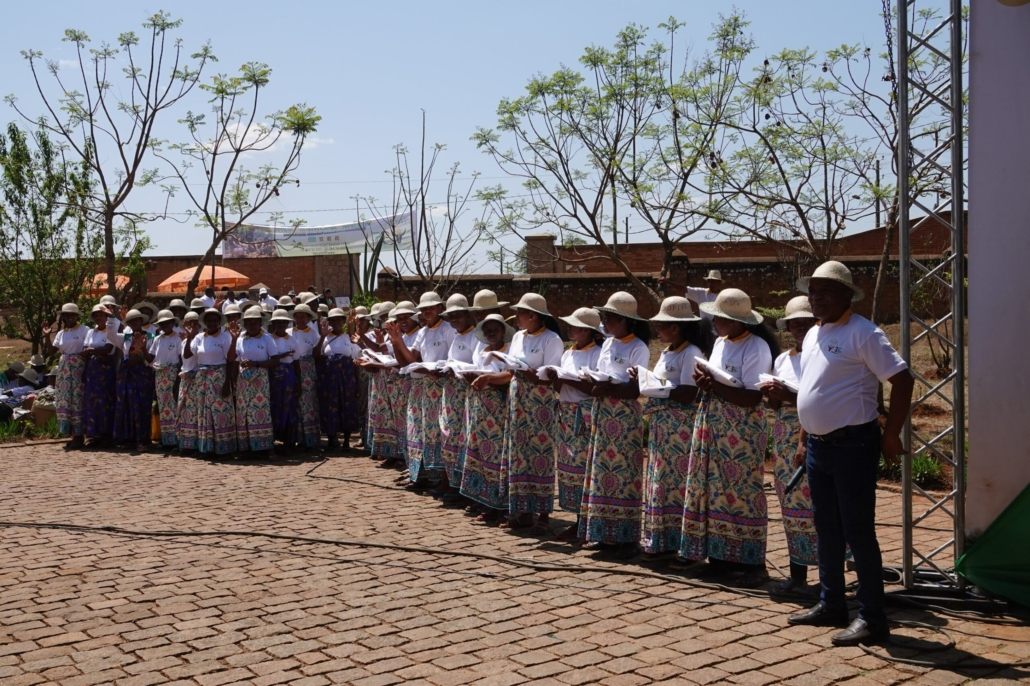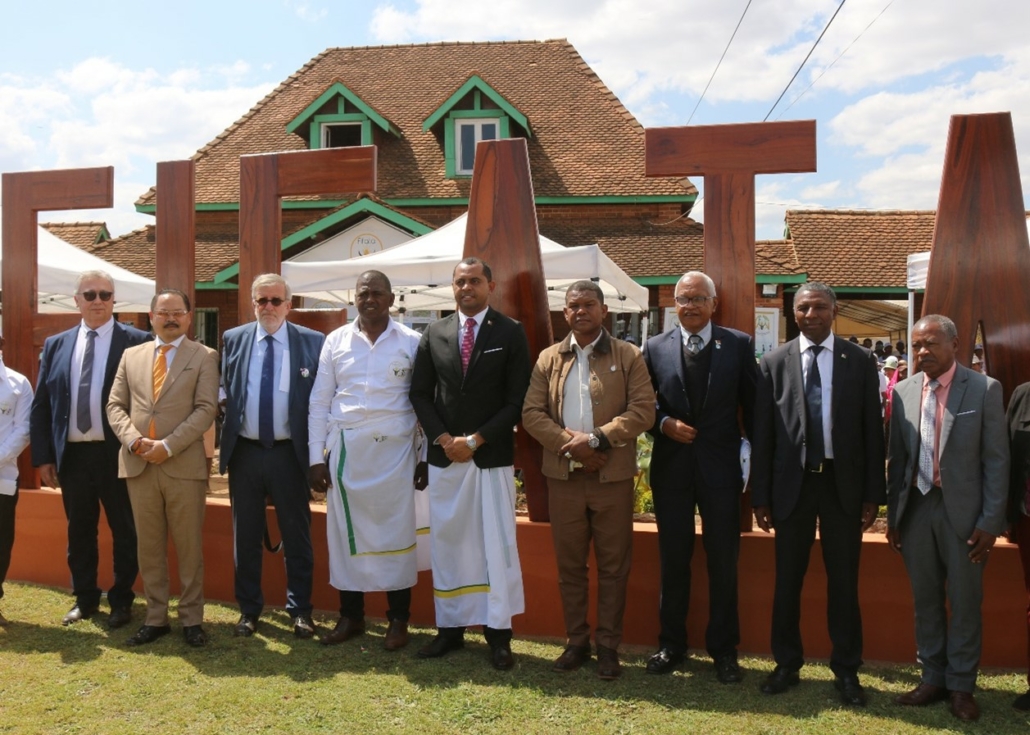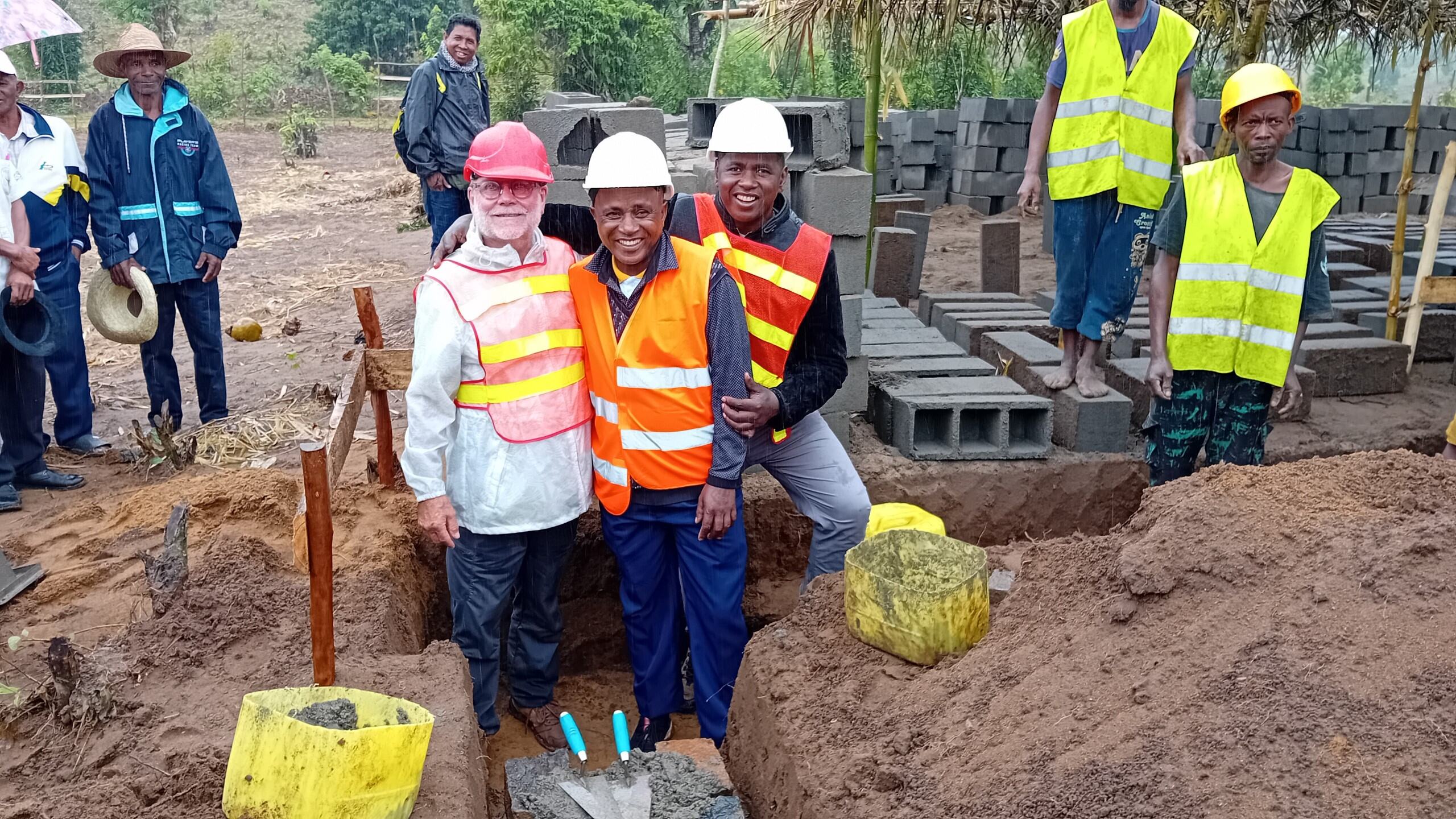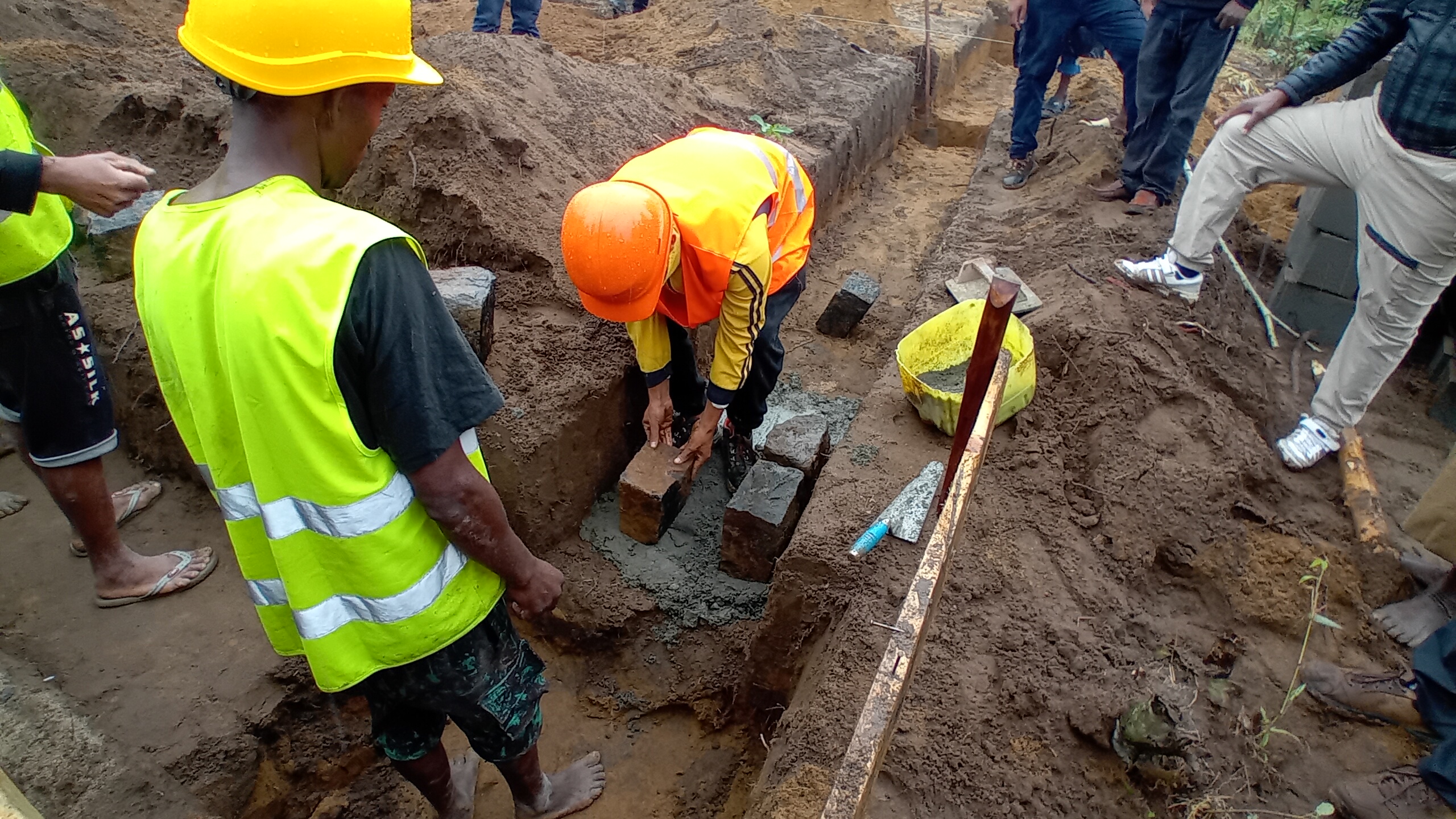Fert’s first actions in Madagascar date back to the end of 1985 in the Middle Mania region. In 1989, based on their activities with rural communities in the Central Highlands, farmers set up a small farmers’ organization called Fifata: “Fikambanana Fampivoarana ny Tantsaha” or “Association for the Progress of Farmers”.
35 years later, Fifata brings together 369,000 families in almost every region of the island and, with the support of Fert and other partners, has developed agricultural services ranging from access to credit to the structuring of the potato seed sector, land tenure security, agricultural training, consultancy, research-innovation and product marketing.
To celebrate its 35th anniversary, Fifata has invited its long-standing partner, Fert, and three other long-standing partners: Unigrains, Cneap and AgriCord.
Unigrains,an investment company specializing in the agri-food and agro-industry sectors, was created on the initiative of French cereal organizations, and has supported Fert since its inception. Over the past 40 years, Unigrains has provided Fert with €30 million in financial support.
Le Cneap federates 180 agricultural high schools in France. Since the early 2000s, Cneap has partnered with Fert to support Fifata in its drive to train and integrate young farmers in Madagascar. The partnership has since been extended to Côte d’Ivoire and Georgia.
AgriCord is an international alliance of 13 agri-agencies, of which Fert is a founding member. AgriCord promotes the exchange of practices, the mobilization of funding for producer organizations and the promotion of agri-agencies’ work.
A 14-person delegation led by Jean-François ISAMBERT, President of Fert, visited Madagascar at the end of September 2024.
Field visits to the Analamanga and Vakinankaratra regions provided an opportunity to exchange views with local farmers’ groups supported by various actors in the Fifata Group. The latter reported on the technical and economic progress achieved thanks to training, agricultural advice and access to financing. Faced with climatic constraints and the high cost of conventional inputs, agroecological practices are rapidly developing in these areas of the Central Highlands, where land is extremely limited and vegetable cultivation and small-scale livestock farming are increasingly important as complements to rice production.
Fifata’s 35th anniversary was organized over three days from September 25 to 27, 2024:
- A day of round-table discussions, punctuated by films and sketches performed by farmers, particularly young people and women, on the themes of local agricultural advice and the professional integration of young people;
- A large march of 3,200 farmers between Fifata headquarters in Antsirabe and the Ceffel Centre in Andranobe. This applied research center, created by Fifata and Fert, was celebrating its 20th anniversary. After a round-table discussion on agroecology and a tour of the Ceffel farm, an in vitro culture laboratory and a greenhouse for potato plant production were inaugurated.
- Finally, the official day with the authorities, and in particular the new Minister of Agriculture, Mr. François Sergio HAJARISON, provided an opportunity for numerous speeches and the inauguration of a memorial plaque.
From left to right: Eric THIROUIN (President of Unigrains), Vyvato Rakotovao (Governor of the Vakinankaratra region), Jean-François ISAMBERT (President of Fert), Roland RAKOTOVAO (President of Fifata), François Sergio HAJARISON (Minister of Agriculture), Narson Seth Jean Richard RAZAFINDRABARY (MP Ambatofinandrahana), Philibert RAKOTOSON (Assistant Program Representative at the FAO Representation in Madagascar, Comoros, Mauritius and Seychelles), Suzelin RATOHIARIJOANA (former Minister of Agriculture), Jeannot Augustin RASOLO (President of Unicecam).
At the end of this first week of farm visits and meetings with leaders, members and technicians from the organizations within the Fifata group, all gathered for Fifata’s 35th anniversary, a smaller delegation continued southwards to meet Fekama agricultural colleges and young men and women who have chosen to become professional farmers.
The delegation included two board members from Fert and CNEAP (Jean-François TAMBOURIN, also president of the Frantsesenia Agricultural High School in Pyrénées-Atlantiques, and Paul-Henri Doublier, president of the Nermont Agricultural High School in Eure-et-Loir), the Secretary General of CNEAP, Florence Machefer, and the director of Fert, Anne Panel. They were accompanied by several representatives from the Fifata Group, particularly Evariste RANDRIANAJAINA and Ando RAZAFINDRATSIMA, respectively President and Director of Fekama, a federation of 5 agricultural colleges.
The visit to the agricultural college in Ambalavao, established in 2006, and to young farmers who have been practicing for 1 to 14 years after their training at the college, highlighted the importance of post-training support from families, village communities, and all the actors in the Fifata group to help young people fully leverage the skills they gained during their education.
Continuing southeast toward Mananjary, the trip concluded with the laying of the foundation stone for the Tsarahafatra Agricultural College, the sixth Fekama agricultural college.
Desired since 2018 by the regional producer organization (OP) Fagnimbogna (a member of Fifata), the creation of this college took five years for Fifata, Fekama, and Fert to develop the project, identify a plot of land and secure its availability from Minae, convince the local authorities and site occupants, mobilize funding for construction and recruit a design office and contractor to start the first phase of work at the end of 2024. A provisional Farmers’ Committee was set up in May 2024, and numerous awareness-raising campaigns in the villages helped to identify nearly 80 young people wishing to join the first class of this new agricultural college.

